Jihad is one of those words that we Moderate MuslimTM types tend to shy away from. This is a shame, and a self-imposed tragedy, because jihad is a beautiful word and an inspiring, noble concept. It is the embodiment of struggle against inexorable force, almost implying a lost cause. And the vast majority of the time, these forces originate within ourselves – the entire concept of Jihad is to overcome our human weakness and strive for an asymptotic ideal which we aspire to, but must also accept that we can never reach.
We are limited by our physical bodies, by our mental biases, and by the very fabric of or humanity. There’s no better time for reflection on the meaning of Jihad than Ramadan, where we ourselves strive all month to at least recognize these limitations, and make partly symbolic and partly concrete attempts to divest ourselves – partly – of them.
Of course, as this is Ramadan and all blog posts in Ramadan must eventually focus on fasting and food, the obvious connection that fasting is also Jihad must be made. But in all other aspects of Ramadan, from reading Qur’an to trying to achieve a more spiritual focus, Jihad also is present, an intuitive motivation towards God, like blind men in a cave moving towards the warmth of a campfire.
It’s important to understand just how limiting the mainstream stereotypes of Jihad are, and how utterly they fail to capture the essential characteristic of the struggle. The Islamophobic interpretation of Jihad, that it is an impulse to domination, often violent, is unworthy of further comment. But the liberal interpretation, that jihad is an “internal struggle”, is equally irrelevant, because what it lacks is a sense of direction. To go Geek on you for a moment, the “internal struggle” is a scalar quantity (like speed), a number in a vacuum. True Jihad is a vector (like velocity), pointing in a specific direction. That direction is opposite to the direction we are pulled by our internal human weaknesses, and external worldly temptations.
Let me list some examples throughout history, mythology, and literature, which all pertain to Jihad in various ways:

The concept of Ascension in the Stargate television series.
The Battle of Thermopylae.
Mount Analogue, by René Daumal. This is possibly one of the most spiritually-inspiring books I have ever read, and sorely miss the loss of my copy.
Zeno’s Dichotomy Paradox and Cantor Sets.
Plato’s Allegory of the Cave.
The Temptations of the Prophet Jesus AS.
I’ll leave the reader to ponder the application of Jihad to these examples. But is it any wonder that such a powerful concept is ripe for such abuse and exploitation? Those who claim the mantle of Jihad – the hirabists – are practicing cargo cult Jihad, attempting to capture it’s power by simply going through the motions of piety. It reflects a profound ignorance on their part of the purpose of faith itself – to draw one closer to God and father from dunya (the world). Those who exploit Jihad prove themselves more intoxicated with the latter than the former.
For the rest of us, however, Jihad is something we must not concede. It is a part of our religious obligation, and our heritage as Muslims. This month, Ramadan, is the month of Jihad and we must rediscover it anew.
Related: My friend Haroon Moghul criticizes the New York Times for it’s recent use of “Jihad” in describing the politically-conservative Tea Party movement. It’s an abuse of our sacred concept, which also perpetuates the “Jihad as violent” stereotype.
Also Related: Dilshad Ali’s moving guest post at Wajahat Ali’s Spiritual Appetite Ramadan blog on Patheos.com, about raising a child with autism.
Somewhat Related: Since some people looking for information about Jihad are not really interested in a ordinary muslim’s spiritual self-awareness, this post on how muslims can combat extremism may be of more interest.
And, for the kids, the best video I could find explaining Jihad in simple terms, courtesy of John and John of They Might Be Giants fame:
There is also a reference to Jihad in this one (see if you can catch it – it’s a bit subtle) starting at around 1 minute:
